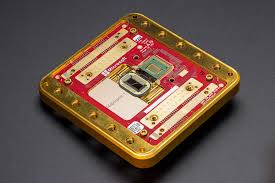Microsoft is making waves in the world of quantum computing with its development of a revolutionary quantum chip known as “Majorana.” Named after the Majorana fermion—an elusive particle theorized to be its own antiparticle—this innovation is designed to pave the way for more robust and scalable quantum computers.

“Technology moving forward can be both exciting and intimidating, but it’s through embracing the unknown that we unlock the potential for progress and innovation.”
Traditional quantum computing relies on qubits, which are prone to errors due to their sensitivity to environmental disturbances. Microsoft’s approach, however, is focused on topological qubits, which are theorized to be more stable because they store quantum information in a manner that is less vulnerable to outside interference. The Majorana qubit is at the heart of this approach, with the potential to revolutionize how quantum computers process and store information
In essence, a Majorana fermion behaves in a unique way compared to other subatomic particles, providing a more stable form of quantum computing. If Microsoft’s work with Majorana fermions is successful, it could lead to more practical and scalable quantum computers capable of solving complex problems that are beyond the reach of today’s classical systems.
Wrapping Up with Key Insights
Though the technology is still in its early stages, Microsoft’s quantum chip project is a significant leap toward overcoming the challenges of quantum computing. The future looks promising, and with Majorana at its core, Microsoft is positioning itself as a key player in the race to develop the next-generation computing power.

